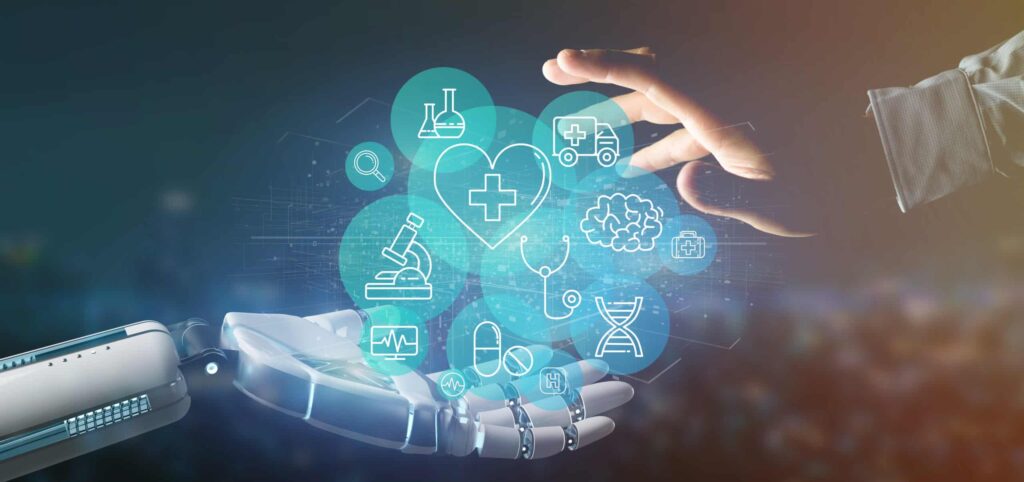AI-powered diagnostics are revolutionizing healthcare by enabling early and accurate disease detection. Machine learning algorithms and deep learning models process vast amounts of medical data, identifying subtle patterns and anomalies that often elude human observation. This advancement promises earlier interventions, improved patient outcomes, and reduced healthcare costs.
Medical imaging is one area where AI has shown remarkable potential. AI systems analyze X-rays, MRIs, and CT scans with high precision, detecting conditions like cancer, cardiovascular diseases, and neurological disorders in their nascent stages. For instance, AI can identify minute changes in lung nodules, flagging potential cases of lung cancer before they become symptomatic.
In addition to imaging, AI excels in analyzing genetic data and biomarkers. AI-powered tools can predict an individual’s risk of hereditary diseases, enabling preventive measures and personalized treatment plans. In the case of chronic illnesses like diabetes or hypertension, AI can analyze patient data from wearable devices, predicting complications before they arise.
AI-powered diagnostics also bridge gaps in resource-constrained settings. By deploying AI-enabled mobile health applications, remote and underserved areas gain access to diagnostic capabilities. These tools empower community health workers to identify diseases such as tuberculosis or malaria without requiring advanced laboratory infrastructure.
Despite its promise, AI-powered diagnostics face challenges. Data privacy is a significant concern, as patient data must be securely stored and shared without compromising confidentiality. Moreover, biases in AI algorithms—often stemming from skewed training data—can lead to inaccurate diagnoses for specific populations. Ensuring diverse datasets and continuous validation is critical to overcoming this issue.
Regulatory hurdles and clinician skepticism also slow adoption. Building trust among healthcare providers requires rigorous clinical trials and transparency in AI decision-making processes. Additionally, integrating AI into existing workflows demands training programs for healthcare professionals to utilize these tools effectively.
AI-powered diagnostics represent a transformative step in healthcare, democratizing access to early disease detection and enhancing precision medicine. By addressing existing challenges, the technology holds the potential to reshape global health, making proactive care a reality for millions.
From Our Editorial Team
Our Editorial team comprises of over 15 highly motivated bunch of individuals, who work tirelessly to get the most sought after curated content for our subscribers.




